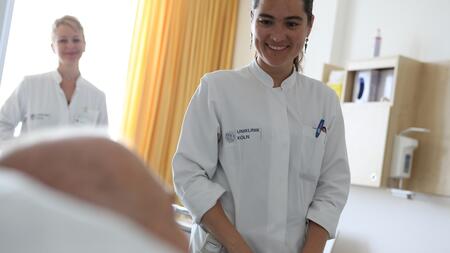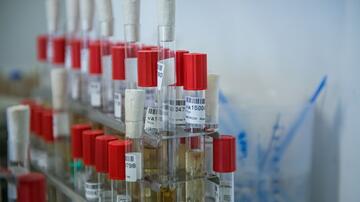Prevention and therapy of infections with multidrug-resistant bacteria
Our IT-based prognosis models, high-resolution diagnostic procedures and novel therapeutic approaches aim at stopping the spread of multidrug-resistant pathogens.
Infections with multi-resistant bacteria do normally not arise spontaneously, but are the result of a multi-step process. Our environment and food, and especially contact with the healthcare system, can lead to colonisation of human body surfaces and internal surfaces with multi-resistant bacteria.
The intestine, as the body's largest bacterial reservoir, plays a special role in this process. While multi-resistant pathogens are initially only present in low density, antibiotic therapy and the associated selection pressure can lead to a pronounced expansion of these pathogens. If the barrier function of the skin or mucous membranes is disturbed, for example by operations, foreign bodies, chemotherapy or immunosuppressants, the result can be a crossing of the barriers and subsequently an invasive infection.
Targeted therapy instead of broad spectrum
In the focus area "Prevention and therapy of infections with multidrug-resistant bacteria", we are looking at approaches to intervene preventively or therapeutically in the pathophysiological process described above. Corresponding strategies include the development of:
- new diagnostic tests that enable early and rational antibiotic therapy,
- IT- and AI-based prognostic models that allow the risk of infection and the causative pathogen to be predicted individually, and
- the integration of novel therapeutic approaches into clinical research.
Methodologically, we use high-resolution cohorts that allow the collection and analysis of a broad spectrum of biological samples as well as clinical data. Linked to these cohorts, the development of diagnostic tests takes place in defined sub-projects.



